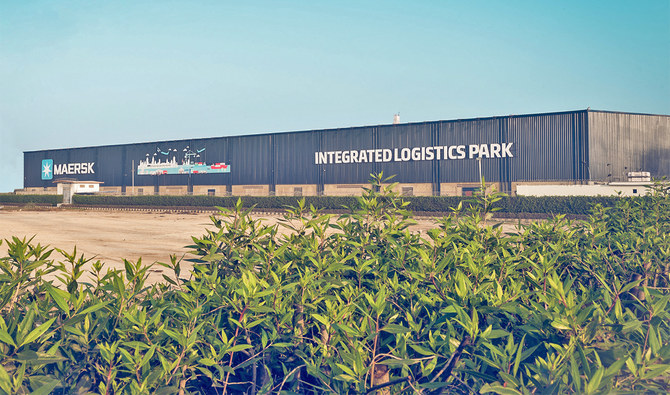ISLAMABAD: In a bid to connect and simplify supply chains for Pakistani importers, exporters and traders, Danish shipping company A.P. Moller Maersk (Maersk) on Wednesday inaugurated an integrated logistics park in Pakistan’s southeastern port city of Karachi, with a total footprint of more than 1.3 million square feet across seven cities, a statement issued by the company said.
Established at Karachi’s Port Qasim, a deep-water seaport situated on the coastline of the Arabian Sea, the park includes six purpose-built sheds, making Maersk the country’s largest logistics and warehousing provider.
The integrated logistics park would act as a warehouse, including a consolidation and fulfillment center and cold storage. This facility will also cater to storage requirements of cargo from retail and lifestyle, fast-moving consumer goods (FMCG), automotive, and technology sectors. It will also serve as the perfect warehouse destination for customers to manage their import and export cargo with the least time delays while connecting to and from vessels.
“At Maersk, our purpose is to improve life for all by integrating the world,” said Hasan Faraz, Managing Director of Maersk Pakistan commented during the inauguration of the facility.
“With our state-of-the-art Integrated Logistics Park, we want to ensure that we play an important role in connecting and simplifying the supply chains for importers, exporters, and traders of Pakistan.”

Danish Ambassador to Pakistan, Jakob Linulf (center), inaugurates Maersk's Integrated Logistics Park at Karachi's Port Qasim, Pakistan on November 30, 2022. (@Maersk/Twitter)
Faraz added that he was proud of this major investment in Pakistan as it would serve as a critical building block in the logistics infrastructure.
“It is also apt to recognize the unwavering support our customers have extended, with whom we could have meaningful conversations that helped us design a solution that creates value in their supply chains.”
Jakob Linulf, the Danish Ambassador to Pakistan, who was also present at the facility’s launch ceremony, said Pakistan had incredible potential to grow.
“Despite the various current challenges, Maersk has played an important role as a trusted partner for Pakistan’s traders,” the statement quoted him as saying. “Maersk’s commitment to invest in a large facility such as the one inaugurated today in Port Qasim speaks volumes of the potential that is out there to be harnessed.”
The statement added that the logistics park would come equipped with modern warehouse management systems.
“With Maersk taking care of the movement of cargo – ocean transportation on one side and landside transportation on the other side of the warehouse – customers will experience lesser handovers of their cargo, leading to higher efficiencies, faster turnaround times, deeper visibility and better control over the cargo movement,” the statement said. “All of this will result in better predictability of supply chains.”
















